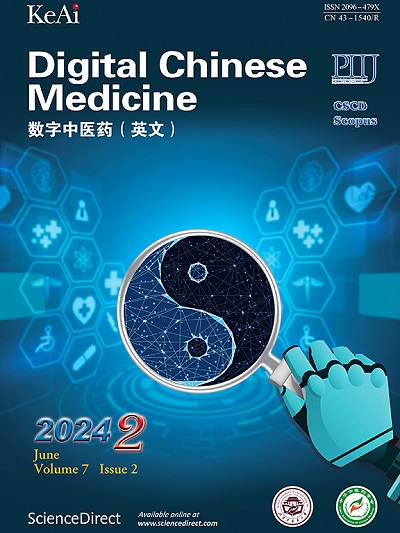Traditional Chinese medicine phenomics research on glycolipid metabolism disorder: a review
Q3 Medicine
引用次数: 0
Abstract
Traditional Chinese medicine (TCM) has demonstrated unique advantages in the prevention and treatment of chronic diseases such as glycolipid metabolism disorder. However, its widespread application has been hindered by the unclear biological essence of TCM syndromes and therapeutic mechanisms. As an emerging interdisciplinary field, phenomics integrates multi-dimensional data including genome, transcriptome, proteome, metabolome, and microbiome. When combined with TCM's holistic philosophy, it forms TCM phenomics, providing novel approaches to reveal the biological connotation of TCM syndromes and the mechanisms of herbal medicine. Taking glycolipid metabolism disorder as an example, this paper explores the application of TCM phenomics in glycolipid metabolism disorder. By analyzing molecular characteristics of related syndromes, TCM phenomics identifies differentially expressed genes, metabolites, and gut microbiota biomarkers to elucidate the dynamic evolution patterns of syndromes. Simultaneously, it deciphers the multi-target regulatory networks of herbal formulas, demonstrating their therapeutic effects through mechanisms including modulation of insulin signaling pathways, improvement of gut microbiota imbalance, and suppression of inflammatory responses. Current challenges include the subjective nature of syndrome diagnosis, insufficient standardization of animal models, and lack of integrated multi-omics analysis. Future research should employ machine learning, multimodal data integration, and cross-omics longitudinal studies to establish quantitative diagnostic systems for syndromes, promote the integration of precision medicine in TCM and western medicine, and accelerate the modernization of TCM.
糖脂代谢紊乱的中医表型组学研究综述
中医药在防治糖脂代谢紊乱等慢性疾病方面具有独特的优势。然而,中医证候的生物学本质和治疗机制尚不明确,阻碍了中医证候的广泛应用。表型组学作为一门新兴的交叉学科,整合了基因组、转录组、蛋白质组、代谢组、微生物组等多维数据。结合中医整体哲学,形成中医表型组学,为揭示中医证候的生物学内涵和草药作用机制提供了新的途径。本文以糖脂代谢紊乱为例,探讨中医表型组学在糖脂代谢紊乱中的应用。中医表型组学通过分析相关证候的分子特征,识别差异表达的基因、代谢物和肠道微生物群生物标志物,阐明证候的动态演化模式。同时,它破译了草药配方的多靶点调节网络,通过调节胰岛素信号通路、改善肠道微生物群失衡和抑制炎症反应等机制证明了它们的治疗作用。目前的挑战包括综合征诊断的主观性、动物模型的不标准化以及缺乏综合的多组学分析。未来的研究应采用机器学习、多模态数据集成、跨组学纵向研究等方法,建立定量的证候诊断体系,促进中西医精准医学的融合,加快中医药现代化进程。
本文章由计算机程序翻译,如有差异,请以英文原文为准。
求助全文
约1分钟内获得全文
求助全文
来源期刊

Digital Chinese Medicine
Medicine-Complementary and Alternative Medicine
CiteScore
1.80
自引率
0.00%
发文量
126
审稿时长
63 days
期刊介绍:
 求助内容:
求助内容: 应助结果提醒方式:
应助结果提醒方式:


